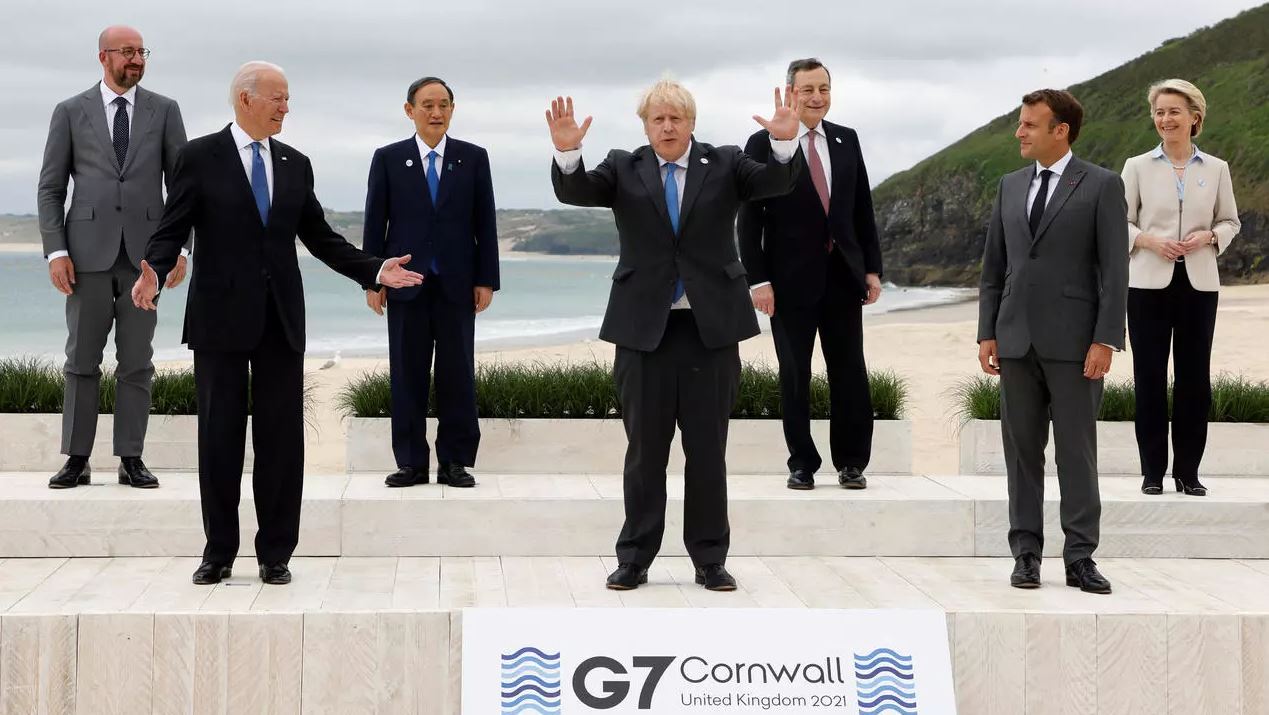Last week’s G7 summit, which comprises of Canada, France, Germany, Italy, Japan, UK and US, met in Carbis Bay (England) to pledge on Pandemic, Climate change and China. UK, which currently holds presidency of the G7, also invited India along with Australia, Republic of Korea and South Africa, as guest countries.
The main themes of this year’s summit were global recovery from Coronavirus to strengthen resilience against future pandemics; promoting future prosperity by championing free and fair trade; tackling climate change and preserving the planet’s biodiversity; and championing shared values and, open and democratic society’s rules-based global economy for the 21st century as well as, tackling of aggressive China.
The UK and US have also agreed to set up a task force aimed at re-starting trans-Atlantic travel that was disrupted by pandemic restrictions. This also happened to be the first official overseas visit for President Joe Biden after taking office.
Summit members pledged short of 1-Billion COVID vaccine shots for the world, which includes US pledging 500 million doses, France and Germany with 30 million each. G7 Members need to be lauded for their generosity when developing nations and under developed countries are struggling with the spread of the pandemic.
The summit leaders have also agreed to take tough climate change action and committed to reach net zero emissions by 2050, and ambitious reduction targets in the 2020s.
At home in US, the bipartisan group of law makers aiming at big tech companies with an antitrust law, pushing for an overhaul of changes to protect small and medium enterprises and curb monopolies of these tech companies. There are five bills in total, which aim at Amazon, Apple, Facebook and Google, and their grip on online commerce, information and entertainment. The proposals would make it easier to break up businesses that have used their dominance in one area to get a stronghold in another, create fresh compliances for acquisitions of nascent rivals and empower regulators with more funds to police companies.
This legislation could reshape the way the companies operate and function. Facebook and Google, for instance, could have a higher bar to prove that any mergers aren’t anticompetitive. Amazon could face more scrutiny when selling its own branded products like toilet paper and clothing. Apple could have a harder time entering new lines of business that are promoted on its App Store.
“Presently, unregulated tech monopolies have too much power over our economy. They are in a unique position to pick winners and losers, destroy small businesses, raise prices on consumers and put folks out of work,” said Representative David Cicilline, Democrat of Rhode Island and chairman of the antitrust subcommittee.
Cicilline added, “An aggressive set of reforms is needed to prevent a future where these monopolists abuse consumer choice and hamper access to innovative and independent products. This legislation breaks up Big Tech’s monopoly power to control what Americans see and say online, and fosters an online market that encourages innovation and provides American small businesses with a fair and level playing field.”







